EU Reveals 2024 Broadband and 5G Connectivity Progress vs UK

The European Commission has this week published their annual 2024 ‘Broadband Coverage in Europe’ study, which reveals how the EU’s fixed gigabit broadband and 5G mobile networks compare across all of its 27 countries, plus Norway, Iceland, Switzerland and the United Kingdom.
The EU’s main target for digital infrastructure is for every European household to have access to “high-speed internet” coverage by the end of 2025 (defined as 100Mbps+) and gigabit (1000Mbps+) connectivity by the end of 2030. Today’s new report, which is largely based on data from last year (June 2023), is intended to help gauge the progress toward achieving those goals.
The EU’s Broadband and Mobile Targets
This Gigabit Society vision for 2025 relies on three main strategic objectives:
➤ Gigabit connectivity for all of the main socio-economic drivers;
➤ uninterrupted 5G coverage for all urban areas and major terrestrial transport paths;
➤ access to connectivity offering at least 100 Mbps for all European households.
The ambition of the Digital Decade is that by 2030:
➤ all European households are covered by a Gigabit network (e.g. DOCSIS 3.1 + FTTP);
➤ all populated areas are covered by 5G (at least).
By comparison, the UK’s £5bn Project Gigabit programme aims to extend gigabit-capable broadband to reach at least 85% of UK premises by the end of 2025, before reaching nationwide coverage (c. 99%) by around 2030. The public funding for this is focused upon aiding the final 20% of hardest to reach premises, where commercial deployments may struggle.
According to Ofcom’s latest data to January 2024 (here), some 97% of UK premises could access a 30Mbps+ (“superfast“) connection (unchanged from 97% last year), while 80% (up from 75%) are able to access gigabit broadband (via FTTP and DOCSIS 3.1 / Hybrid Fibre Coax) and that falls to 62% (up from 52%) when only looking at Fibre-to-the-Premises (FTTP). Take note that, in the UK, DOCSIS 3.1 largely reflects Virgin Media’s urban Hybrid Fibre Coax (cable) network.
As for mobile networks, over 99% of UK premises (outdoor) have access to 4G and between 85-92% of premises can access 5G from at least one operator (up from 76-85%) – falling to 16-28% in 5G areas where all four operators exist (up from 12-22%).
However, it’s important to stress that the EU’s comparative data below is about 6 months older than Ofcom’s latest data above, which is why the figures for the UK come in a little bit lower.
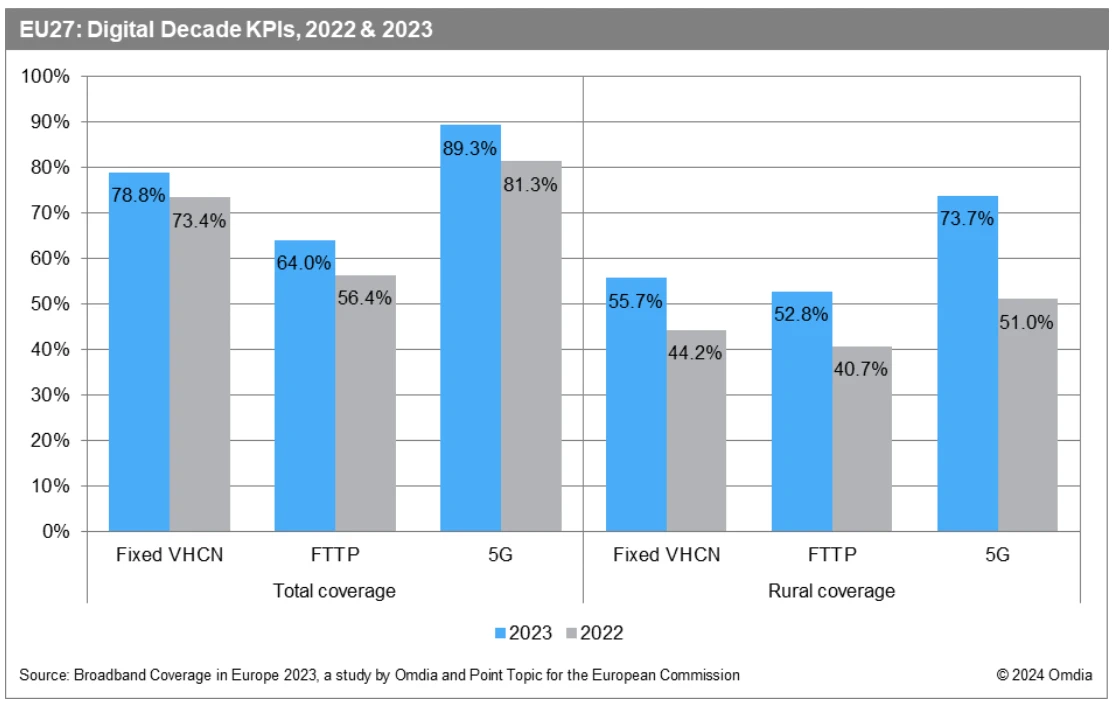
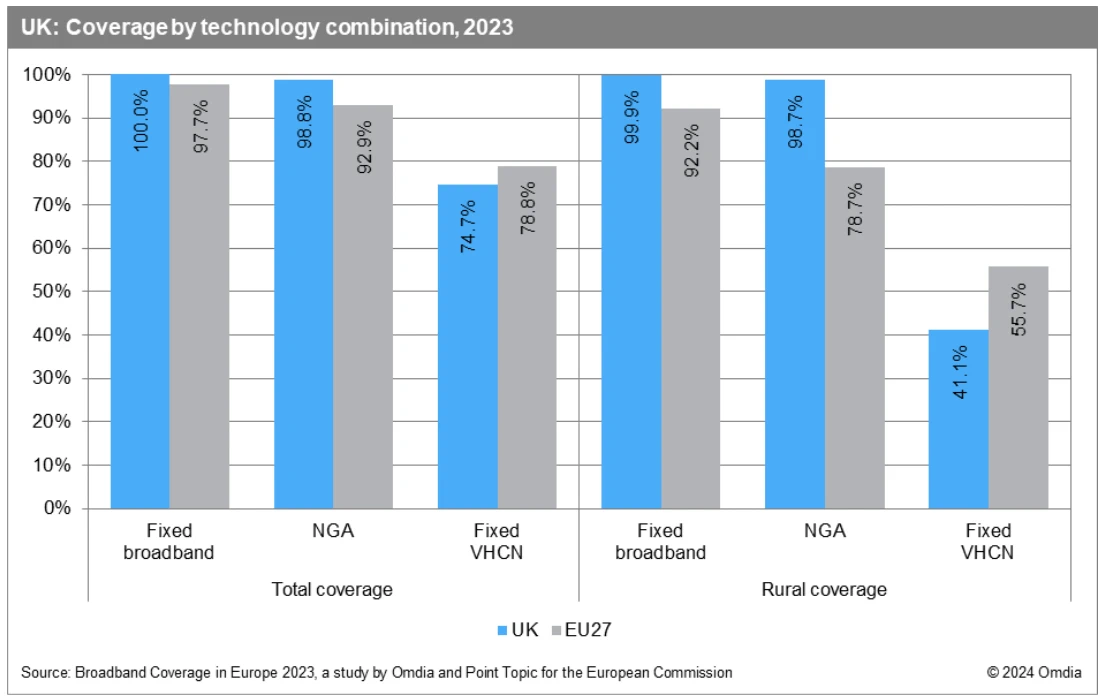
Overall, the EU27 appears to be in a roughly similar sort of place to the United Kingdom, with total FTTP coverage of 64%, gigabit (VHCN) broadband coverage of 78.8% and 5G population coverage of 89.3%. But we do have to remember that quite a few EU states have been building FTTP at scale for many years longer than the UK, although we’re now catching up fast.
We should point out that they also report total EU fixed NGA (Next Generation Access) broadband coverage of 92.9% (up from 91.5%) – this generally means fixed lines that can deliver so-called “superfast” downloads (30Mbps+), which is one area where the UK – with its strong FTTC (VDSL2) coverage via Openreach’s network – does tend to do better. By comparison, a lot more EU rural areas are still stuck on much slower ADSL.
However, the main focus of the EU’s report is on 5G and gigabit / VHCN (FTTP + DOCSIS 3.1) coverage, with the differences between EU states and the UK becoming much clearer in these areas once we drill down to the individual country level. In both cases, the UK still resides in the bottom quarter of the table (much like last year’s report). Check out this summary of EU country codes if you don’t know which ones they reference.
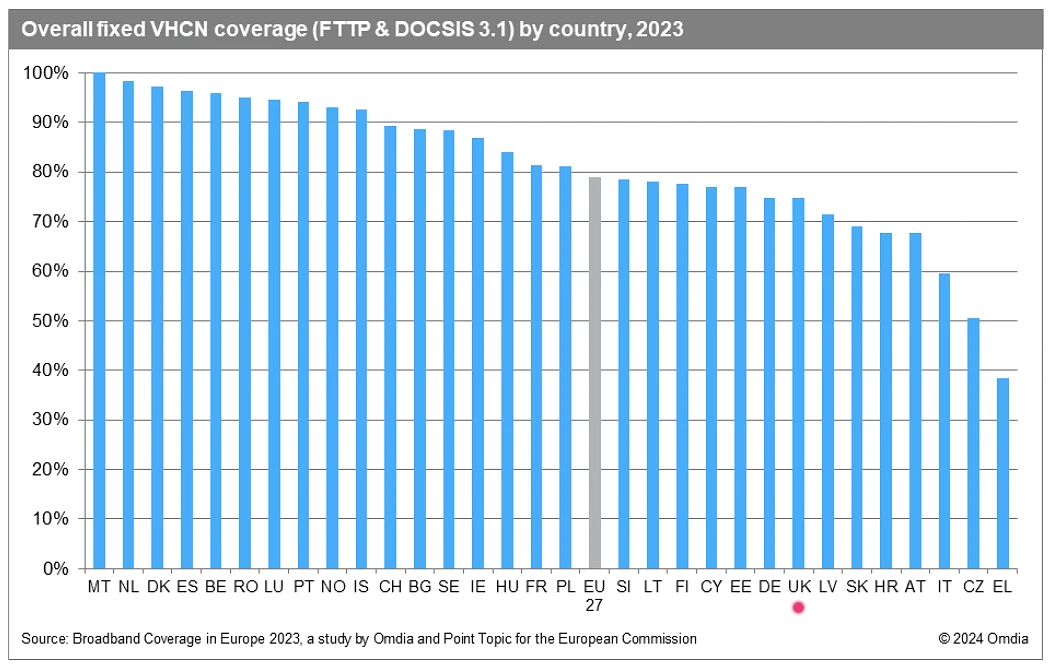
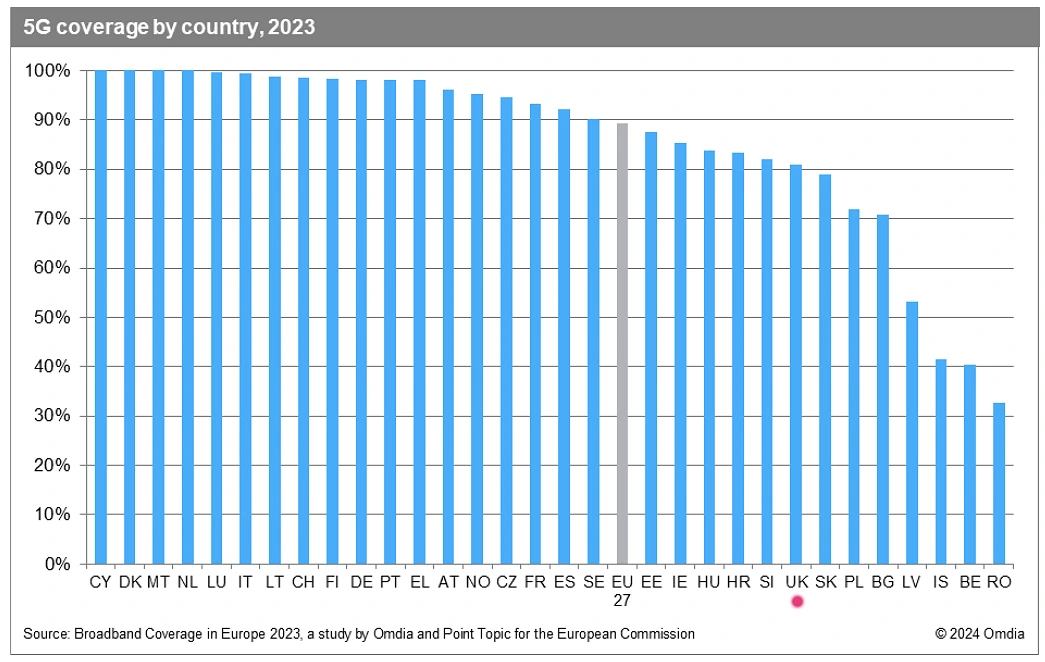
Despite the negatives, it’s worth remembering that the UK’s pace of FTTP build is currently one of the fastest in the world and catching up fast (here), so it’s not all bad news. The UK’s 5G deployment also took a hit a couple of years ago when the Government decided to ban Huawei’s kit, and not to mention that our overall coverage targets in this area have historically been quite weak.
Mercifully the UK government did recently set a firmer ambition for “all populated areas to be covered by ‘standalone’ 5G (5G-plus) by 2030“ (here), although the reference toward “populated areas” may not necessarily deliver a good % figure for geographic coverage – depending upon how they define this. Overall, the UK’s 5G targets are still a bit flaky, although EE alone does expect to hit over 90% geographic coverage by 2028 (here).
The full report contains a lot more data.
Broadband Coverage in Europe 2024/23
https://ec.europa.eu/../document/106735roadband-coverage-europe
Mark is a professional technology writer, IT consultant and computer engineer from Dorset (England), he also founded ISPreview in 1999 and enjoys analysing the latest telecoms and broadband developments. Find me on X (Twitter), Mastodon, Facebook and Linkedin.
« BT Tops MedUX 2024 Study of Big UK Broadband ISP Performance UPDATE2
Leave a Reply Cancel reply
This site uses Akismet to reduce spam. Learn how your comment data is processed.
Privacy Notice: Please note that news comments are anonymous, which means that we do NOT require you to enter any real personal details to post a message. By clicking to submit a post you agree to storing your comment content, display name, IP, email and / or website details in our database, for as long as the post remains live.
Only the submitted name and comment will be displayed in public, while the rest will be kept private (we will never share this outside of ISPreview, regardless of whether the data is real or fake). This comment system uses submitted IP, email and website address data to spot abuse and spammers. All data is transferred via an encrypted (https secure) session.
NOTE 1: Sometimes your comment might not appear immediately due to site cache (this is cleared every few hours) or it may be caught by automated moderation / anti-spam.
NOTE 2: Comments that break our rules, spam, troll or post via known fake IP/proxy servers may be blocked or removed.
Latest UK ISP News
- FTTP (5687)
- BT (3558)
- Politics (2591)
- Openreach (2336)
- Business (2313)
- Building Digital UK (2269)
- FTTC (2059)
- Mobile Broadband (2030)
- Statistics (1822)
- 4G (1717)
- Virgin Media (1667)
- Ofcom Regulation (1488)
- Fibre Optic (1420)
- Wireless Internet (1415)
- FTTH (1383)





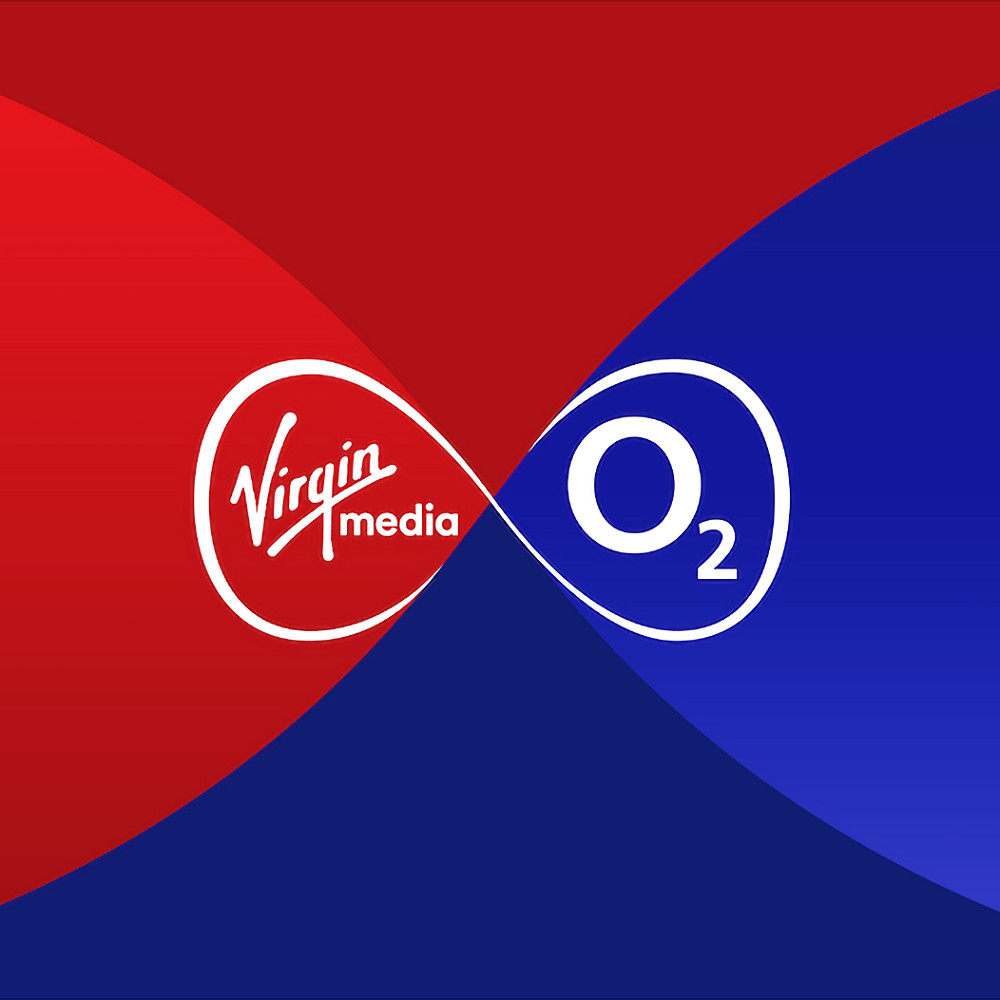




























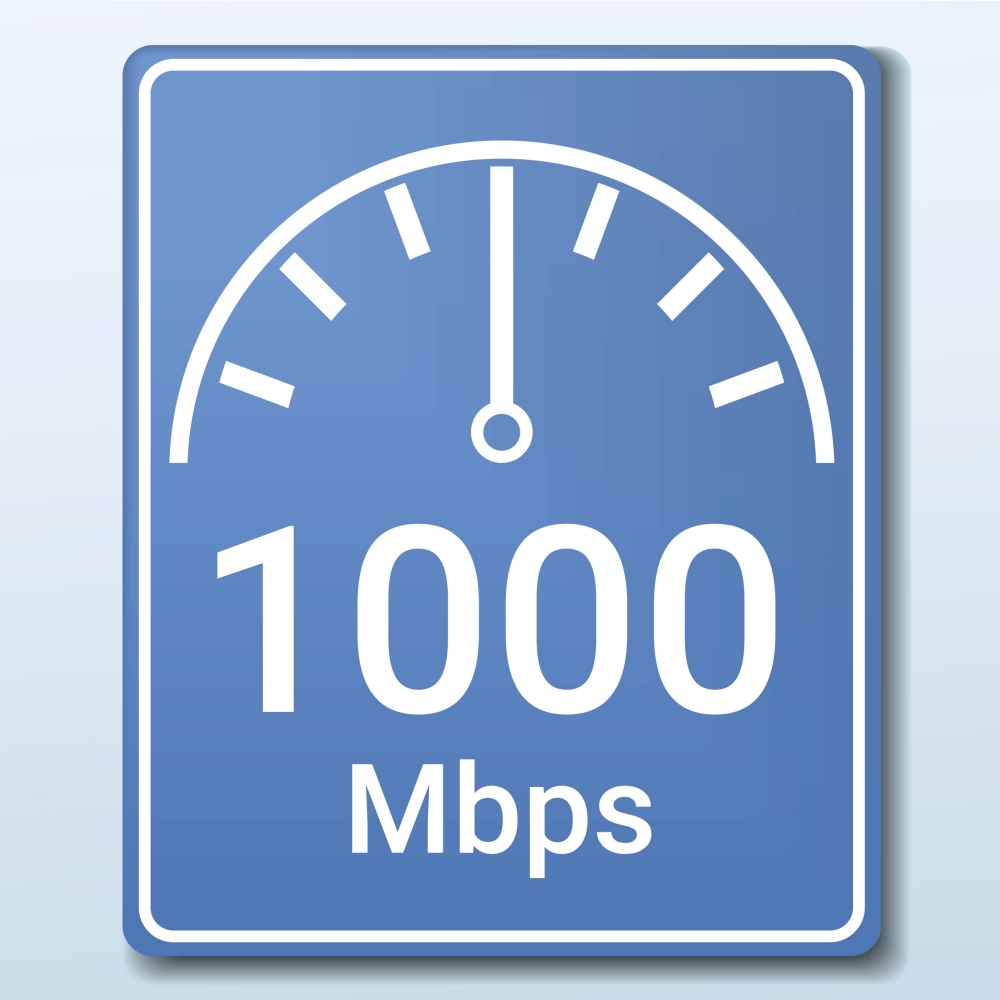
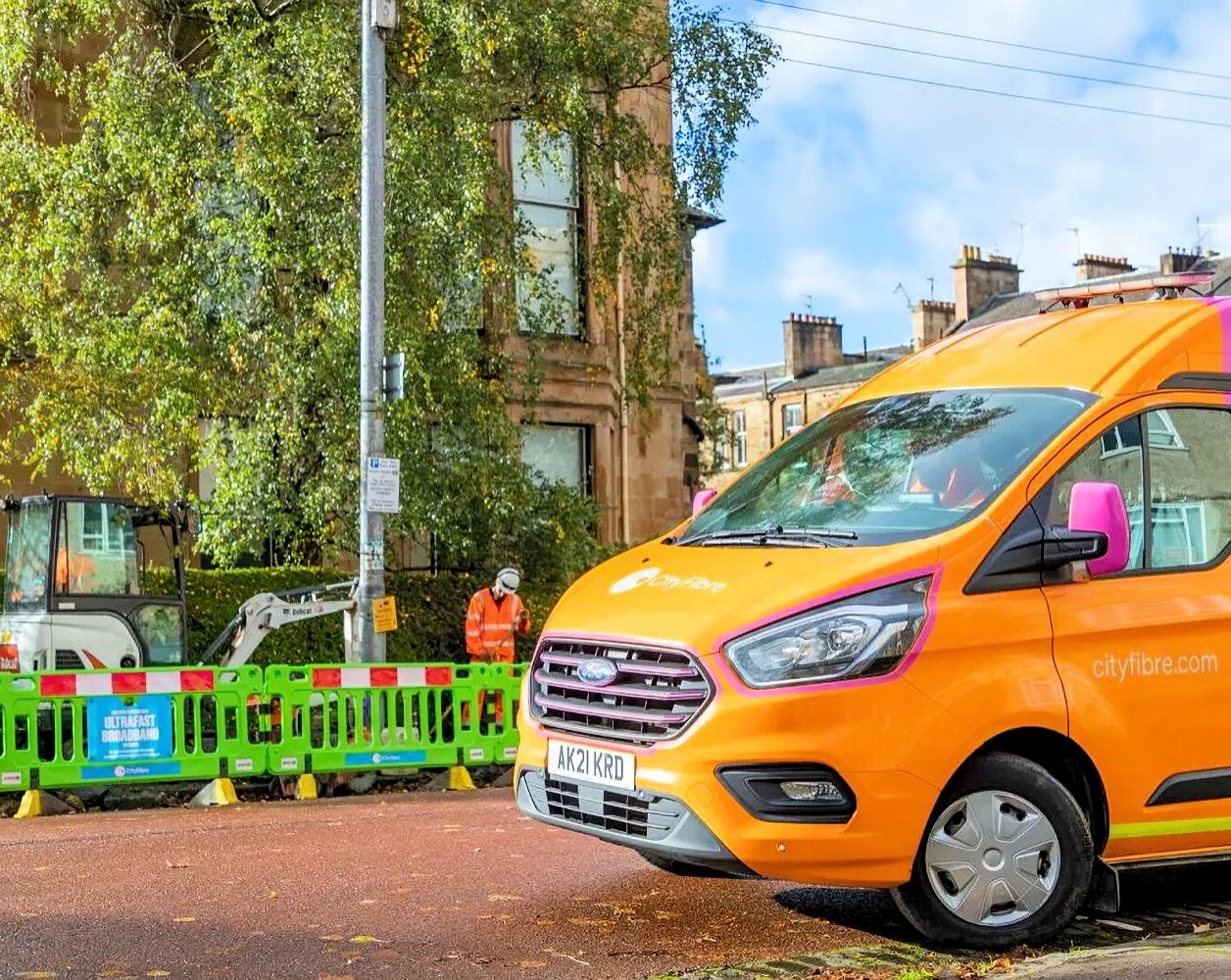


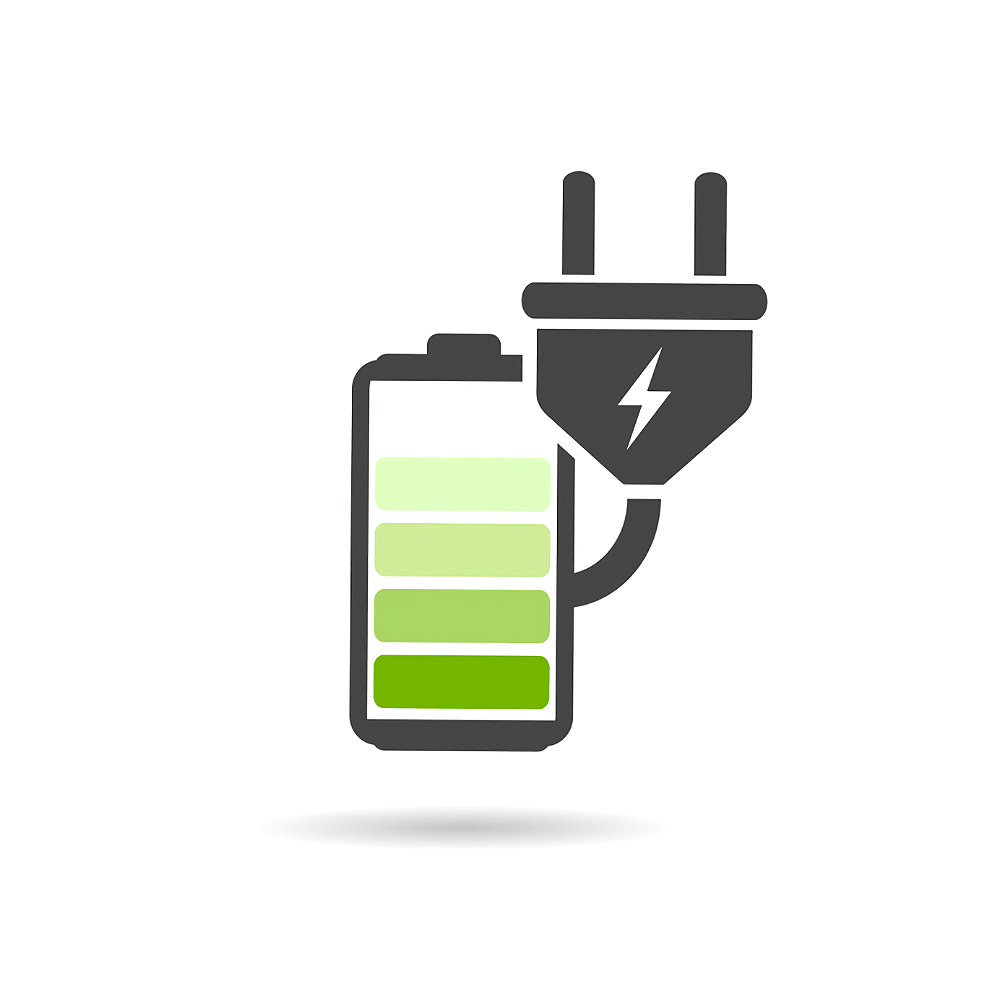


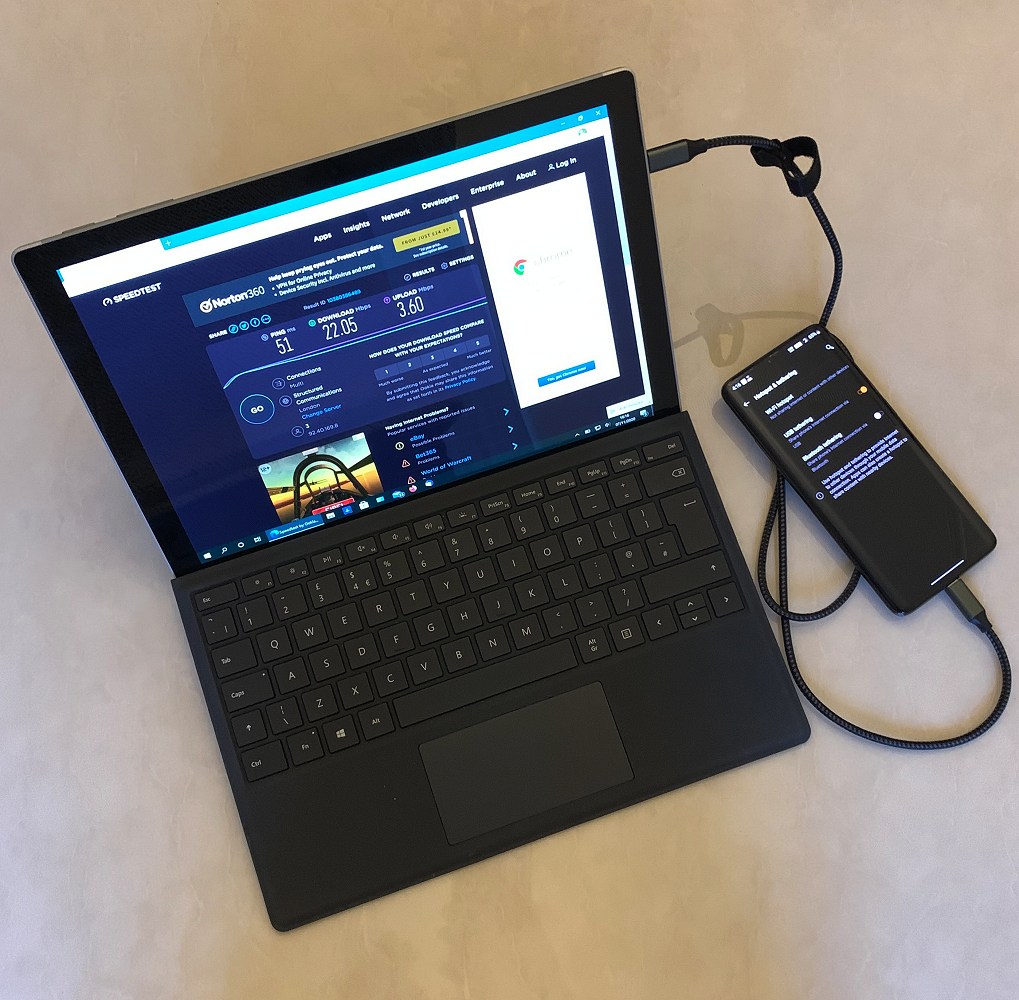


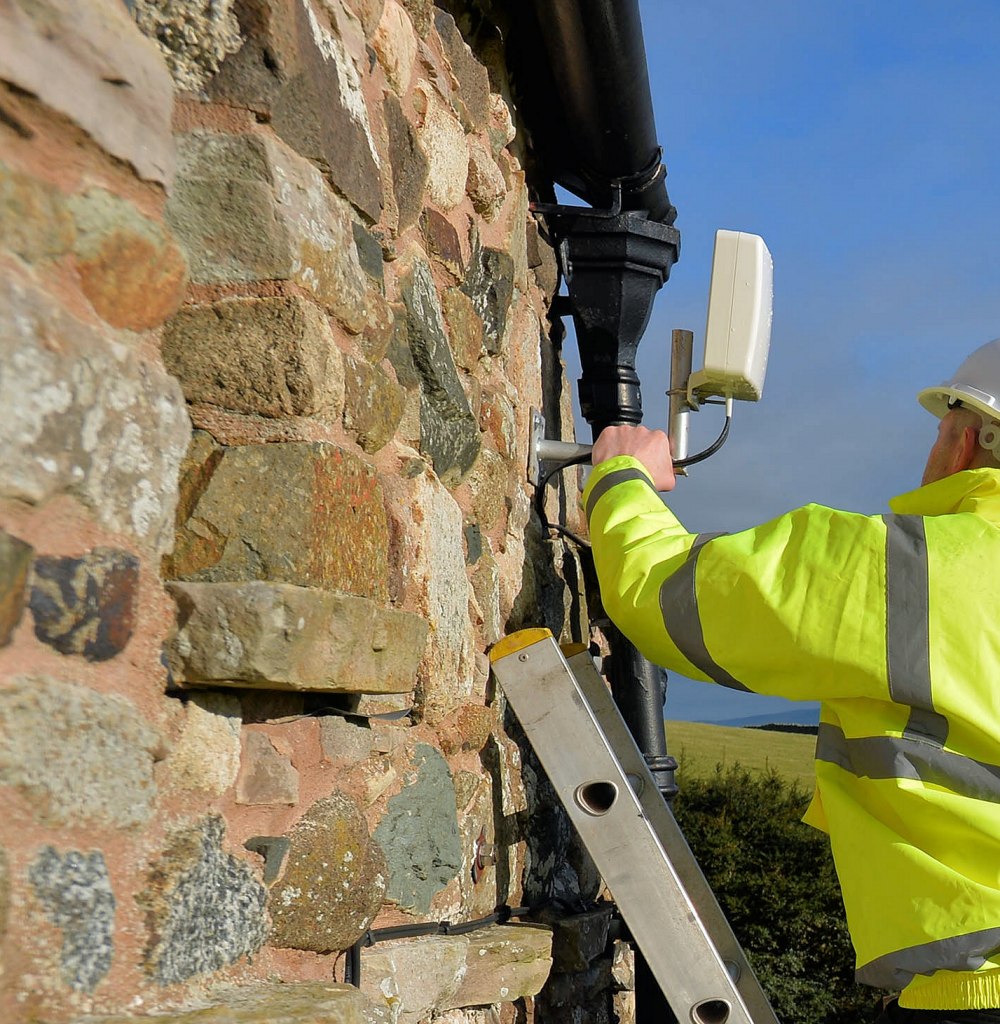
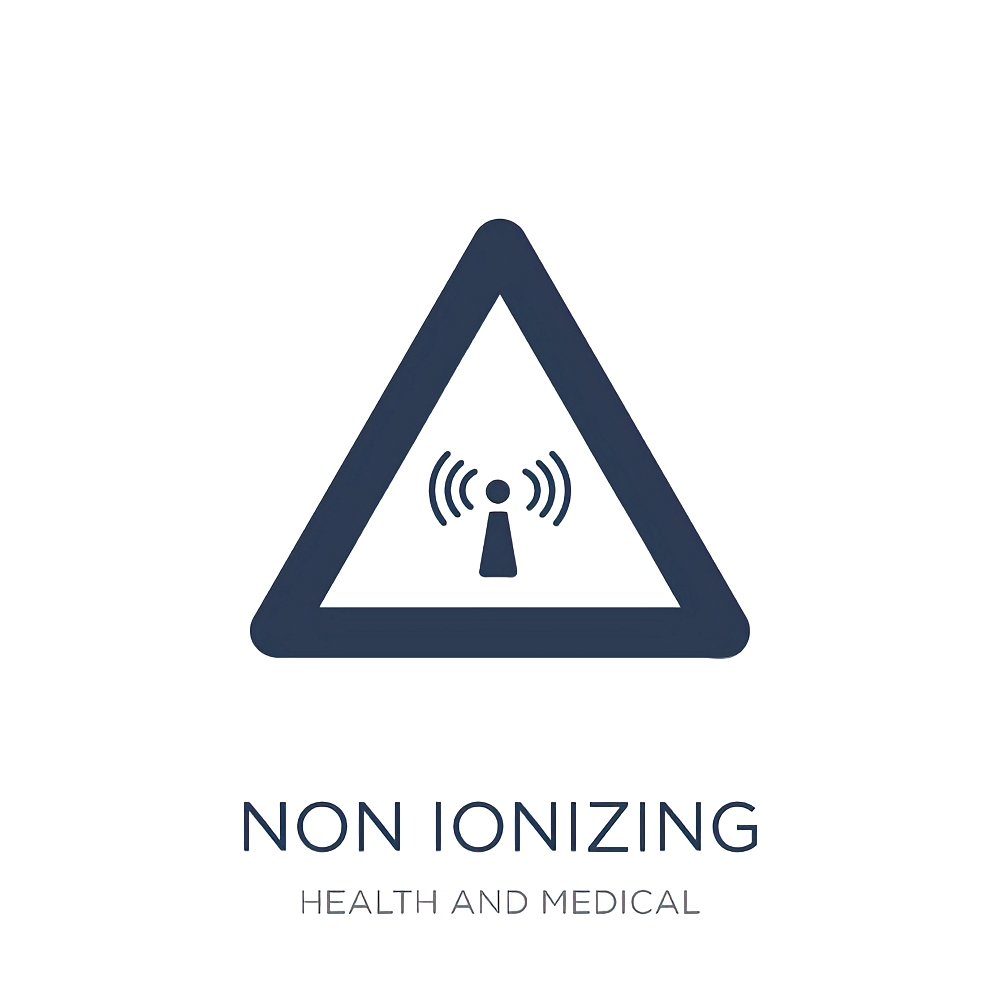






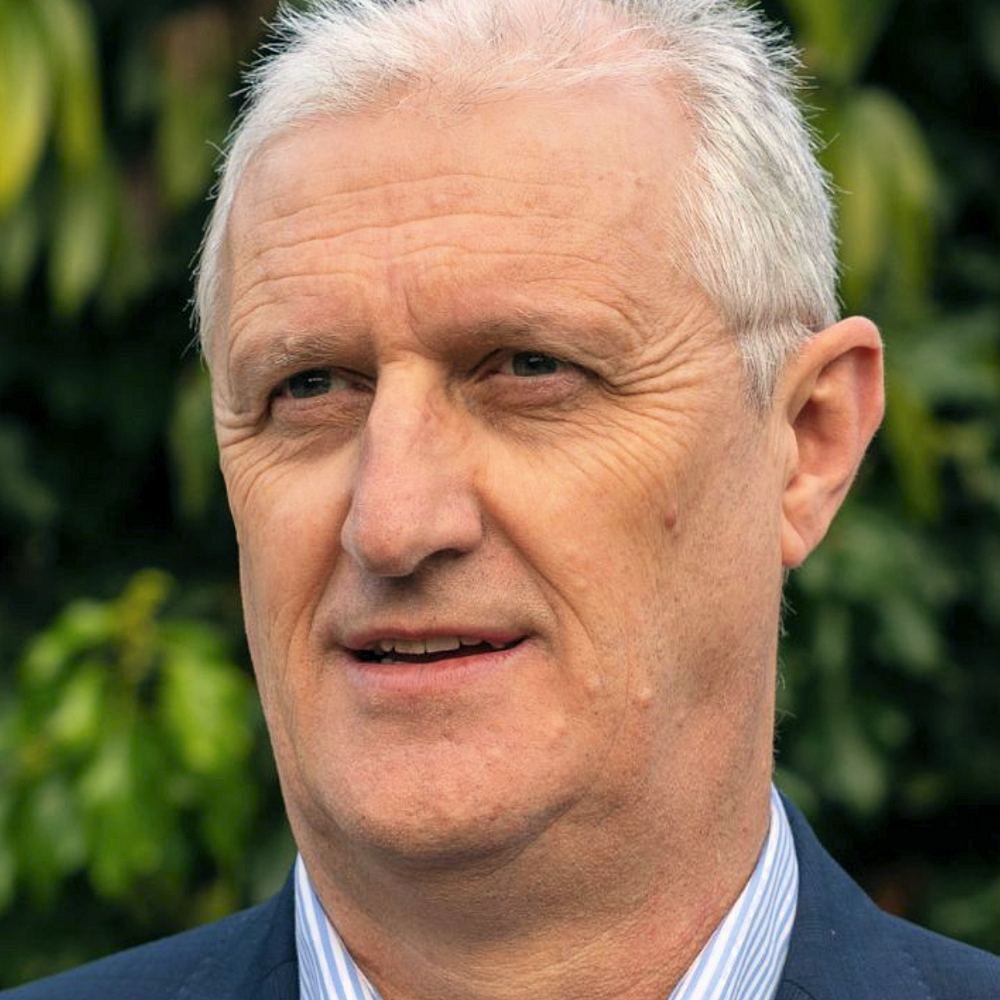

> As for mobile networks, over 99% of UK premises (outdoor) have access to 4G
Maybe, but the /quality/ of the network is the problem. Getting one signal bar of 4G with single digit (sometimes less) download and upload speed is hardly usable these days.
> and between 85-92% of premises can access 5G from at least one operator (up from 76-85%)
Somehow I seriously doubt this claim. At least in the South East of England.
I doubt the claim too, its a load of tosh and they know it. Smoke and mirrors, just like their “pretend” 5G.
Even 2G is getting worse – at my parents where I could use mobile inside and outside I now have to find a spot where it works outside. 4G is better outside but as bad inside.
Wish I could get faster than 3mbps through landline and 12mbps-ish with atrocious ping via 4G
FTTC, FTTP & 5G are distant dream and the help is nonexistent as ‘BT’ say 4G in the area meets the universal guarantee, despite it being appalling quality and getting much, much worse
I used to get 35mbps+ over 4G too, but it has got worse over time, not just the speed, but the quality of its connection too
Thats because they get more subscribers and higer usage yet don’t increase the backhaul to their datacenters.
A strong signal is one thing, traffic is another. Central Birmingham is a typical example of over saturation especially where 3uk are concerned be it on 4G or 5G if you can get it. Other operators have the same issues I’m sure but nothing ever seems to improve and yet out trots the latest must have devices to clutch onto only to be let down by the very technology they depend on – at least in the uk, a bit like taking a Maybach through the jungle.
I notice that the data they’re using is quite old, as you’ve pointed out yourself, Mark.
With today’s data, the UK would likely occupy roughly the position that Hungary falls into now, in the above graph.
The speed of the UK deployment is no doubt impressive!
80% 5G coverage in UK in 2023.. the UK sits on a throne of lies.
But the vested interests have no problem distributing the human excrement everywhere, especially North-West London.Funny that.
I’ve been experimenting using a cheapo mobile router with GG sim this month as a substitute for BT landline broadband (50Mbps down), with a view to testing the feasibility of ditching the landline and saving some money. (As an OAP, got to make some savings if the incoming government, of whatever hue, is set to raise £15billion of spending money by whatever means).
Of course, all the signal checkers show tick in box for 2G, 3G, 4G & 5G coverage for all provders in my area, which is definately being economic with the actualite.
I found that whilst the signal strength is anything between 1 and 3 bars (out of 3 max), download speed varies between 2 and 10mbps and is usually at the higher end after bedtime. Surprisingly, these download rates, particularly at the lower end, still support live streaming e.g. the Euros footie, YT videos, web radio, with only very occasionally L-O-S/buffering and most of those losses were occuring due, I suspect, to the volume of bods watching (Last week I was watching the live streaming of the County cricket fixtures and there were no issues).
I see Smarty have been offering a monthly unlimited data only SIM for £17-20.
We live in hope. No doubt HMG Treasury will be doing the cost benefit calculations to compare the outcomes and effects on productivity as between taking a fresh consignment of rubber boat Johnnies or upping the mobile speeds. Of course, the latter option might have its work cut-out to give a competitive account of itself, if the East Anglian gangmasters are only paying 30pence an hour (And regular beatings) for Latvian fieldworkers
I am currently watching Le Tour on the desktop courtesy of a mobile signal of 3.72 Mbps down, 1.1 up and ping 46,VPN and the server of a french TV station.
No L-O-S/buffering Tres bon